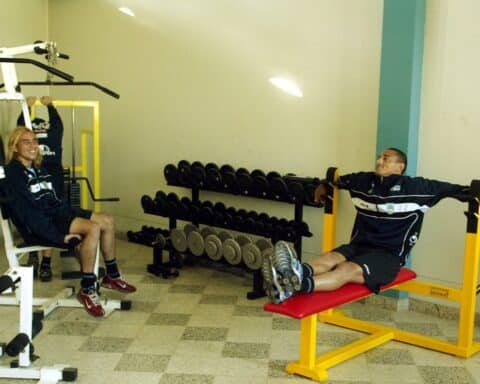If you absolutely love 2020 and don’t want it to end, you can stop reading right now.
Everyone else, pull up a chair. Let’s talk.
Has this year been awful, or what?
We’ve been locked down, locked up, locked out. We’ve learned to recognize people from their eyebrows wiggling above their masks. It’s the year when “zoom” became a verb and the most familiar abbreviation in America became WFH. (It took me a while to figure that one out: Working From Home. For the longest time, I thought for sure it was an obscenity with a typo.)
Brian Stelter, the media reporter for CNN, described this as the year of the line: lines to buy toilet paper, lines to vote, lines of protesters, lines to get takeout from a restaurant, lines to get food at pantries, lines to get tested for COVID … the list (and the lines) never seems to end.
But this much is certain: Depending on when you’re reading this, 2020 is either over or it will end soon. And for some of us, it couldn’t end soon enough.
So, what are we going to do about it?
Perhaps more to the point: What are we Catholics going to do with 2021? How can we take the experience of this past year and use it to remake our lives and refocus our faith?
Many of us like to make resolutions for a new year. But frankly, after the year we’ve all endured, I think we need more than a resolution; we need a revolution. A complete overhaul. A reboot. If 2020 has taught us anything, it’s this: The only thing that is certain is that nothing is certain.
For us Catholics, this means learning from the year that’s ending and seeing it not just through the rearview mirror, but refracted through the lens of faith. A new year offers us more than a fresh start. After 2020, it can be an opportunity for conversion of heart — to take what we have experienced and resolve to grow more deeply as people of faith.
Losing weight and exercising are great — good luck with that diet! — but how about exercising our spiritual muscles?
This is a moment to resolve to get our faith in shape — to live more prayerfully, more gratefully, more thoughtfully, more hopefully.
How can we do that? Here are a few ideas and suggestions for helping to step out of the seemingly endless lines of 2020 so we can chart a new path for 2021. You don’t have to tackle them all; try one or two. You might be surprised at what happens. Our God is the God of astonishment and miracles.
Ready? Here we go.
1. Prayer and gratitude

Hit the ground running — and start by hitting your knees. You can kickstart your daily prayer life by resolving to begin and end every day in prayer. We spent a lot of 2020 praying for patience, or perseverance, or asking God to help us find the last bottle of Purell. But try starting 2021 with a prayer comprised of two simple words: “Thank you.” Despite the headaches and hardships and heartbreaks of the last year, we can be grateful for what we survived and be hopeful for what is to come. Find a moment or two to offer a quiet prayer of gratitude. Count your blessings. Find reason to hope. You’ll be amazed at how it can change your perspective — and reset your day.
Want to give your renewed prayer life a little “oomph”? Pick a patron saint for the new year. Dedicate each day to your patron. Read up on your saint. Pray with him or her. Ask for guidance, intercession, or just help. You might find you enjoy the company!
………………………………………………………………………………………………………………………………………………………………………………….
2. Adoration

……………………………………………………………………………………………………………………………………………………………………………………..
3. Pray the Rosary
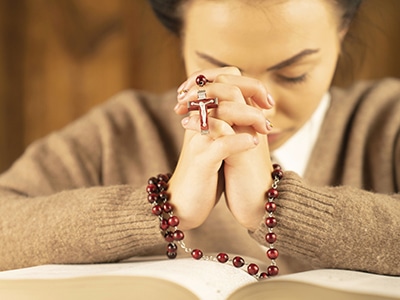
Intimidated? Start small. Begin with just one bead, then try a decade, then two. Soon enough, you’re praying the Rosary like a pro. Tuck it in your pocket or purse before you head out the door. Finger the beads and whisper a prayer while waiting for a bus, riding to work or walking the dog. Use your imagination. You can turn almost anything into an opportunity to hail Mary. It can help immeasurably to give you a sense of peace and give your day an added dose of grace. Who doesn’t want that?
……………………………………………………………………………………………………………………………………………………………………………………
4. Pray with others

…………………………………………………………………………………………………………………………………………………………………………………….
5. Get involved
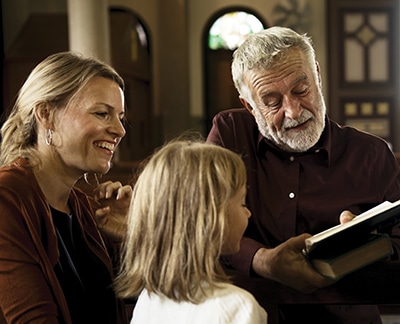
Resolve to get to know some of the people you only see in the parking lot on Sunday. Resolve to learn what your parish is doing to reach out to the sick, the elderly, the hungry or the poor. Resolve to find opportunities to give and give back. Look at it this way: God didn’t pull you through 2020 so that you could spend 2021 as if it were 2019. This has been an opportunity to reflect on what was and what can be. Resolve to live differently!
……………………………………………………………………………………………………………………………………………………………………………………..
6. Confession
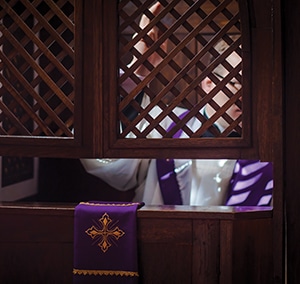
……………………………………………………………………………………………………………………………………………………………………………………..
7. Fasting and abstinence
Try life in the fasting lane. During Lent, I like to tell people, “Abstinence makes the heart grow fonder.” But why limit it only to Lent? The ancient Catholic discipline of fasting and abstinence can do more than just help you drop a pound or two; it can, in a very real and tangible way, become a form of prayer. It reminds us of the poor, the hungry, the suffering around us. And it can connect us powerfully to all of those who have had to go without, reminding us of victims of COVID who couldn’t see dying family and friends, or the suddenly unemployed who found themselves for the first time visiting a food pantry.
I know, I know, sacrificing a meal or two one day a week or giving up meat or a favorite food on Friday sounds so “pre-Vatican II.” But it’s actually very contemporary. After lifting restrictions on “no meat on Friday,” the Church has been encouraging some sort of personal sacrifice on Fridays since 1966. The fact is skipping a meal may be the easiest thing to do. The U.S. Catholic bishops offered some other ideas in the mid-60s: “It would bring great glory to God and good to souls if Fridays found our people doing volunteer work in hospitals, visiting the sick, serving the needs of the aged and the lonely, instructing the young in the Faith, participating as Christians in community affairs, and meeting our obligations to our families, our friends, our neighbors, and our community, including our parishes, with a special zeal born of the desire to add the merit of penance to the other virtues exercised in good works born of living faith.”
That brings me to some advice that I often mention when I preach on Ash Wednesday.
……………………………………………………………………………………………………………………………………………………………………………………
8. Works of mercy
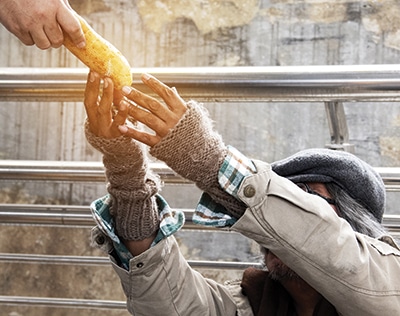
For starters, resolve in 2021 to look for ways to feed the hungry, give drink to the thirsty, visit the sick and shelter the homeless. Send a card to someone who is lonely. Offer a Mass for someone who has died. Donate to shelters, pantries, charities. Often, the most precious gift of all is simply the gift of time. Spend an hour with someone who is hurting or needs help. Buy flowers for a lonely neighbor to let them know they are loved and remembered. Help people know that they have dignity. They matter. It can be a beautiful way of carrying out the second greatest commandment: loving your neighbor as yourself.
…………………………………………………………………………………………………………………………………………………………………………………….
9. Pilgrimage
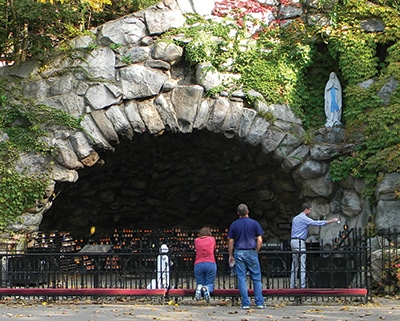
……………………………………………………………………………………………………………………………………………………………………………………
10. Reflect

If you do nothing else, just do this: remember. Resolve to remember what 2020 was like. Remember the dread, the anxiety, the uncertainty. Remember the anger and the despair and the inconvenience — not just within your own household, but all over the world. Remember the lines — yes, all of them — and the waits and the frustration. Remember those we lost. Hold them close in prayer. And remember that the world will be healing from this difficult year for a long time to come. In your remembrance, remember patience, kindness, mercy. Remember lessons learned, hope restored. We Catholics live as people who every week hear again the quiet, transformative command: “Do this in memory of me.” Remembering is central to our faith. So do this: remember. Take nothing for granted. All of us, in one way or another, have been changed by our shared experience of a once-in-a-century global pandemic. Reflect on it all. Pass it on. Share what you learned with your children, your grandchildren. You won’t regret it.
Most of all: resolve to have a truly blessed new year — one that is new, focused on growing, learning, hoping. Every page of the calendar is blank. By the grace of God, every day holds promise and possibility. Recall the stirring and hope-filled words from Revelation: “Behold, I make all things new” (21:5).
After the old year, isn’t that what we all really want?
May that want become a reality for all of us in 2021. And may we all resolve to trust, to pray and to collaborate with God to make it so!
Deacon Greg Kandra is the creator of The Deacons Bench blog (TheDeaconsBench.com) and is the author of “The Busy Person’s Guide to an Extraordinary Life” (Word Among Us Press).



